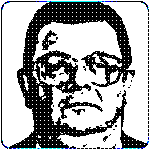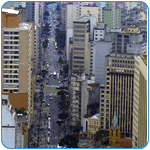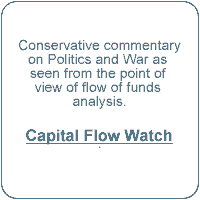 Aliomar Baleeiro and Antonio Delfim Netto
Aliomar Baleeiro and Antonio Delfim Netto
Historical Notes
Antonio Delfim Netto and Capital Market Development
Aliomar Baleeiro : (1905-1978) Brazilian legislator at state and federal levels from 1935 to 1964. Between 1965 and 1973 Aliomar Baleeiro was a justice of the Supreme Court, with two years as Chief Justice. Although an ardent democrat and critic of the autocratic ambitions of Getúlio Vargas, he supported General Castelo Branco in removing João Goulart from power in 1964. However, by 1973 he became a critic of restrictions on powers of the judiciary under military rule and left the bench. He was one of Brazil's leading authorities on tax law. In 1964, he was in favor of modernization of the Brazilian capital market and requested John Schroy and Geoffrey Langlands to draft reform legislation. In addition to examination by the government, this draft was debated in committees of the 'Associação dos Diretores de Empresas de Crédito, Investimento, Financiamento' (ADECIF) during the year. |
Antônio Delfim Netto : (1928 - ) An economics professor from the University of São Paulo, called by Roberto Campos to work in the Ministry of Planning after the Revolution of 1964, and as Minister of Finance during presidencies of Artur de Costa e Silva (1967-1969) and Emilio Garrastazu Médici (1969-1974).  He was Minister of Planning from 1979 to 1985 under President João Baptista Figueiredo. Delfim Netto is one of the three Ministers of Finance responsible for the 'Economic Miracle' during the period of military rule. A pragmatic economist and Paulista, Delfim Netto was more closely associated with banking and industrial interests of São Paulo than with the group of Fundação Getúlio Vargas economists who were primarily responsible for modernizing the Brazilian capital market (Octávio Gouvêia de Bulhões, Dênio Nogueira, José Garrido Torres, and Mário Henrique Simonsen.) By the end of his term as Minister of Finance and Minister of Planning, Brazil's financial center had shifted irrevocably to São Paulo. His failure to understand the imbalances created by his capital market policies in 1971, led to the market crash of that year, which he blamed on speculators, saying that the losses would serve as a beneficial learning experience. |
Capital Market Development (1964) : The Brazilians developed a domestic capital market in the 1950s and 1960s without assistance from the World Bank or the International Monetary Fund.
The International Finance Corporation (a subsidiary of the World Bank) only established its 'capital markets division' in 1971 and coined the term 'emerging markets' in 1981.  The IFC only got involved with capital market development after 1971 The IFC only got involved with capital market development after 1971In fact, in mid-century few knew how to create a securities market from scratch and many doubted that it could be done. The Joint U.S.- Brazil Technical Commission of 1949 (the Abbink Commission) offered timid suggestions on 'strengthening securities markets', such as:
In 1949, the capital market lagged far behind other sectors of the Brazilian economy. Lack of progress was largely due to laws that gave a quasi-monopoly on the securities business to a handful of 'official brokers' who had no real interest in or talent for market development. The Brazilian capital market grew not because of technical assistance or advice from New York or the World Bank, but because of the determined efforts of relatively few people in the private sector, the government, and practical economists, working together informally towards this end during the 1950s and 1960s. Contrary to the suggestions of the Abbink Commission, the Brazilian market came to life, just as in the United States in the 19th century, without benefit of a Securities and Exchange Commission. Many individuals that helped in the early development of Brazilian market institutions were located in Rio de Janeiro, while issuers of stocks were often situated in São Paulo. In the 1960s, the major players included:
All told, in the early 1960s there were probably not more than one hundred individuals who made appreciable contributions of time, ideas, leadership and organizational skills in building the Brazilian capital market. This group included economists from the Fundação Getúlio Vargas in Rio de Janeiro. During the 1970s, leadership for development changed, shifting from a few individuals to large banking groups and stock exchange officials. With Delfim Netto, a Paulista, as Minister of Finance, the nexus of the market moved decisively to São Paulo. By the 1990s, large international investment groups had a strong presence in the Brazilian market.  São Paulo is now Brazil's financial capital São Paulo is now Brazil's financial capitalBy the 21st century, the Rio de Janeiro Stock Exchange had been closed and São Paulo was the financial capital of Brazil. The successful development of the Brazilian market in the 1950s and 1960s encouraged the World Bank to put 'capital market development' in its medicine bag for developing countries in 1971. Since then, many millions of dollars have been spent by USAID, the ADB, and the World Bank in sponsoring capital market development in countries throughout the world. Lessons learned in developing the Brazilian market in the 1960s were transferred to other markets throughout the world.
|

